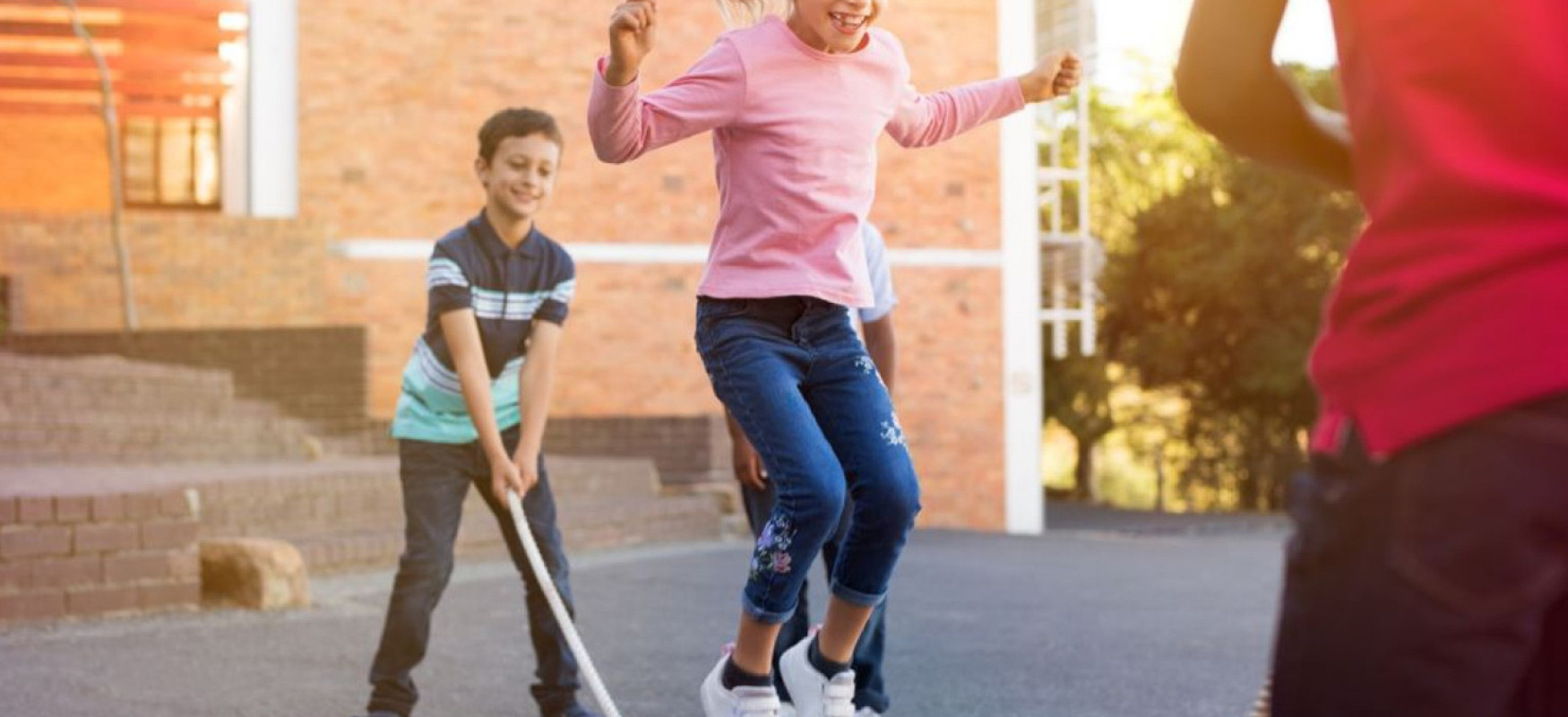What do 900 children, smartwatches and a Danish school reform have in common? They are all part of the solution in a project in Denmark’s Syddjurs Municipality that aims to improve school children's health by using data.
The catalyst for this change came from alarming statistics revealing high obesity rates among children in the Danish region of Jylland. "We wanted to find a way to address the issue of childhood obesity in our region without just sending more consultants to measure kids and do activities," says Lasse Ziska, the project manager of the Healthy Cities project.
Inspired by Denmark's school reform, which mandates at least 45 minutes of physical activity during a school day, Ziska embarked on a project to measure how much children actually move and if there are any patterns to their movement. The study involved anonymous tracking of the activity levels of approximately 450 school children over ten days – in two periods with different children. The results were eye-opening.
"We could see the differences between different schools, demographics and genders. We could also see how much they moved during different classes, such as PE, language and math, as well as during breaks," explains Ziska. "The overall conclusion was that 86 percent of the participants got their 45 minutes of physical activity. But when we looked closer into the numbers, we could see that only 56 percent of children were active during lessons.
They also found that boys were more physically active than girls, though there were outliers on both sides of the scale: a small group of both genders were very active while another small group were very inactive.
The data collected from this project can help schools and municipalities collaborate to establish best practices that will benefit all children and the municipality as a whole
- Lasse Ziska, Project Manager, the Healthy Cities project
Ziska emphasizes the importance of using data wisely. Firstly, all participants in the project were voluntary. Secondly, all data were anonymized and used compliance with the EU’s General Data Protection Regulation (GDPR). Finally, he highlights the importance of not misusing the findings to create stereotypes based on socioeconomic factors. “It should be a tool for sharing knowledge, best practices, and advice, and not to stigmatize or stereotype. What it should be is a tool for discussing what the schools with the most active kids do that the schools with the least active kids do not, and then learning from each other,” Ziska explains.
Ziska, who is now Head of the Tech Lab Department at ITK Aarhus, is a firm believer in preventing health issues by ensuring that children stay active, rather than merely treating problems once they arise. “Traditionally, healthcare funding has been heavily skewed towards treating illnesses rather than preventing them, the ratio being almost 9:1. We believe in challenging this approach. Nordic Innovation aims to shift this funding to a 50/50 share," he says.
Aarhus is part of the Nordic countries' smart city network, funded by Nordic Innovation. The network aims to foster innovation in the 20 largest cities in the region. Aarhus, as a leading smart city in Denmark, has been proactive in leveraging new technologies to benefit local communities in the Govtech Midtjylland collaboration.
Read about the Nordic Healthy Cities
Armed with the data from the study, Ziska believes schools are more likely to take deliberate steps to give children a more active school day. "If you don't have data to prove the effects, there's little chance that anyone will actually put money into new solutions," he asserts.
Ziska believes the municipal sector will benefit from being more explorative. He sees his project as an example of what municipalities can achieve when they embrace innovation and collaboration. "The data collected from this project can help schools and municipalities collaborate to establish best practices that will benefit all children and the municipality as a whole," said Ziska.
Looking ahead, Ziska hopes to delve deeper into the mental health aspect of physical activity. With increasing numbers of children struggling with feelings of exclusion and loneliness, he believes it is crucial to address these issues proactively to see if there is perhaps a connection between children’s physical and mental health.
One thing is certain, he firmly believes that collaboration, innovation and exploration lead to improvement, also in the local community. “If municipalities continue to innovate and be explorative, I think we can do great things and make a lot of progress.”
The project’s results, and an analysis of the underlying data, will be presented at the Nordic Smart City Network conference in Aarhus, Denmark on March 19, 2024. Admission is free of charge.
